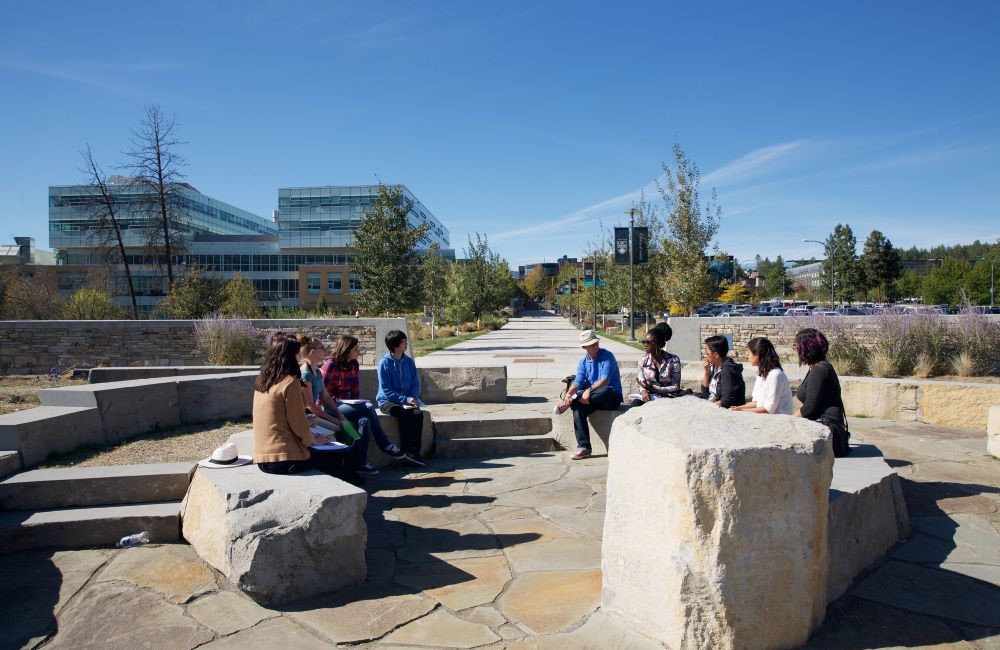

We respectfully acknowledge that UBC Okanagan and the Faculty of Health and Social Development are situated and operate on traditional, ancestral and unceded territories of the syilx Okanagan Peoples. The syilx peoples have inhabited these lands since time immemorial. We are grateful to have the opportunity to live, learn, and work on Indigenous lands.
Image Banner above: sn̓ilíʔtn, a permanent installation by syilx artist Les Louis and co-funded by the Okanagan Nation Alliance (ONA).
We are deeply committed to fostering environments where equity, diversity and inclusion are at the heart of everything we do. We aim to create dynamic learning, teaching, and working spaces where everyone feels valued and empowered to thrive. We can spark innovation and drive positive change by embracing various perspectives and experiences.
Together, let’s build a culture where everyone’s voice is heard, and every individual has the opportunity to succeed. Join us in making our Faculty a place where diversity is celebrated, inclusion is embedded, and equity is a reality.

The EDI Committee is a varied group of faculty, staff, and students from both graduate and undergraduate levels. We’re excited to work together and welcome your ideas and perspectives!

Find information on our efforts relating to Indigenization, decolonization, EDI, and accessibility.

Stay in the loop by subscribing to our EDI Update newsletter! You’ll get the latest on upcoming events, workshops, and learning opportunities from the Faculty and UBC. Don’t miss out on these chances to engage with us!

Dive into learning resources to support your journey, connect with others, and foster continuous growth and development.